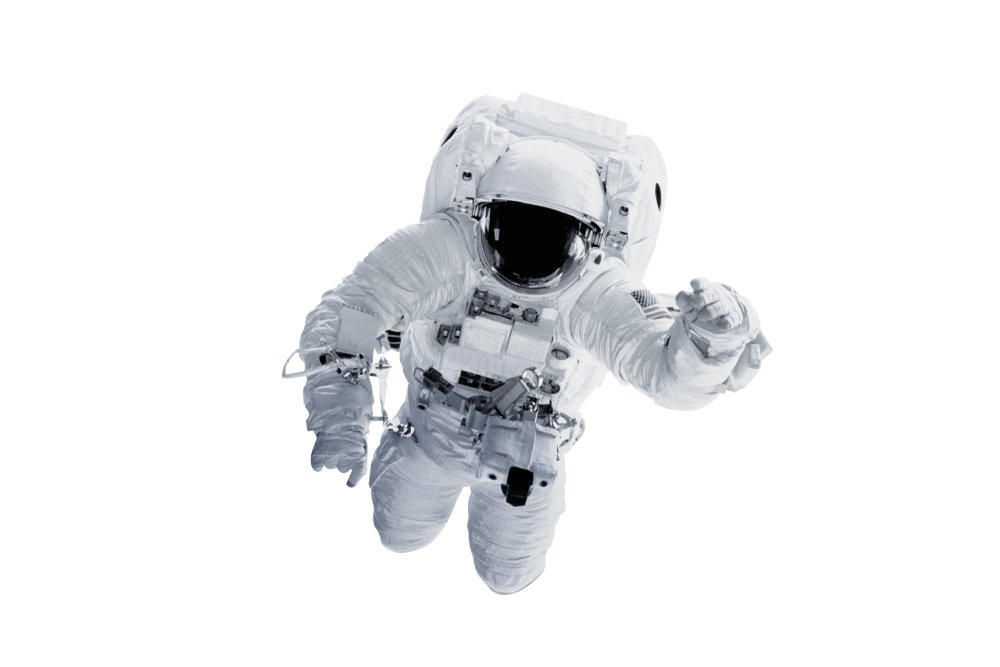You Actually Get Taller in Space But Only Temporarily

Imagine growing up to two inches taller not by stretching or surgery, but simply by floating. That’s what happens to astronauts after months in microgravity. In space, your spine isn’t compressed by gravity the way it is on Earth. The discs between your vertebrae expand, straightening your spine and making you literally stretch out.
It sounds like a sci-fi dream, but it comes with drawbacks. The extra height isn’t permanent, and it often causes back pain. When astronauts return to Earth, gravity pulls everything back down, and their height goes back to normal within a few days. The temporary growth can also mess with the fit of space suits and exercise gear. For scientists, this weird stretching phenomenon is just one reminder of how deeply gravity shapes our bodies and how quickly things change when it’s gone.
Your Face Swells and Your Legs Shrink
Living in space flips your body’s fluid distribution. Without gravity pulling blood and fluids downward, everything floats toward your upper body and head. This shift makes astronauts look puffier, especially in the face, while their legs look slimmer and slightly deflated. It’s often called “moon face,” and it can be surprisingly uncomfortable.
The fluid shift isn’t just cosmetic. It affects everything from sinus pressure to vision, and it can cause headaches or congestion. Legs, meanwhile, can lose muscle tone and mass, giving astronauts that “chicken-leg” appearance. Doctors monitor these changes closely because long-term fluid imbalance could impact organ function or increase the risk of kidney stones. It’s a strange trade-off: a rounder face and thinner legs — courtesy of microgravity’s weird rules.
Your Eyes Can Change Shape and Vision May Blur
Some astronauts return from long missions with permanent changes to their eyesight. The culprit is something called SANS (Spaceflight-Associated Neuro-ocular Syndrome), a condition linked to the same fluid shifts that make your face swell. Increased pressure in the skull and behind the eyes can flatten the eyeball, altering its shape and causing farsightedness.
Not every astronaut experiences this, and the severity varies. But for those affected, the change can be long-lasting. Reading glasses are often required even after returning to Earth. Researchers are still trying to figure out how to counteract this effect, experimenting with lower-body negative pressure suits and other ways to redistribute fluids. Until they crack the code, blurry vision remains one of the most puzzling side effects of spending too much time off-planet.
Your Sense of Smell and Taste Can Get Weird
Food tastes different in space — and not always in a good way. Many astronauts report that their sense of taste becomes dull or muted, while others say certain flavors become stronger or more metallic. The likely cause? Once again, it’s that pesky fluid shift. With nasal passages slightly swollen, it’s harder to smell — and since smell is closely tied to taste, the overall experience changes.
This is why spicy and flavorful foods are a hit aboard the International Space Station. Hot sauce, garlic paste, and tangy condiments are favorites among astronauts trying to bring their taste buds back to life. The change isn’t dangerous, but it can make meals feel less satisfying — and that matters when food is one of the few joys in a tightly scheduled, high-stress environment. Taste in space isn’t just about enjoyment. It’s tied to morale, nutrition, and keeping astronauts mentally sharp.
Your Bones Start to Melt Away

One of the most alarming effects of space travel is how quickly the body loses bone density. In microgravity, bones don’t bear weight the same way they do on Earth. As a result, the body starts breaking down bone tissue faster than it can rebuild it — a condition similar to osteoporosis, but accelerated.
Astronauts can lose up to 1% of their bone mass per month, especially in the hips and legs. That’s why space missions include strict exercise routines involving resistance machines and treadmills with harnesses to simulate weight-bearing activity. Even so, full recovery after returning to Earth can take years. Scientists are still searching for better ways to preserve bone health in space, especially for future missions to Mars. Losing bone might sound invisible, but it’s a critical factor in how long we can safely live and work off-world.
Your Blood Moves Differently and It Can Trick Your Heart
In space, gravity no longer pulls blood down toward your feet, which causes a curious redistribution of fluids throughout the body. Your heart, used to pumping against Earth’s gravitational pull, suddenly finds the job much easier — and that throws off its rhythm. It may shrink slightly in size, and your body may interpret the increase in upper-body fluid as “extra” volume, triggering it to eliminate some plasma.
The result is a reduced blood volume overall, which might not be a problem in space, but becomes an issue during re-entry and return to Earth. Some astronauts feel dizzy or even faint after landing because their circulatory system has to readjust to gravity’s demands. It’s a subtle but critical shift in cardiovascular behavior that researchers continue to study, especially as missions grow longer and more ambitious. Your blood, it turns out, is very much a creature of gravity — and doesn’t appreciate being untethered for too long.
Your Immune System Starts Acting Strangely
The immune system is one of the quieter yet more vulnerable systems during spaceflight. Astronauts don’t usually get sick while in orbit, but their immune responses become irregular. Some immune cells become sluggish, while others overreact to minor irritants. Latent viruses like Epstein-Barr can reactivate, even without symptoms, suggesting that the body is struggling to maintain equilibrium.
This isn’t just a lab curiosity. An unpredictable immune system in space can make astronauts more susceptible to infections when they return to Earth or if they encounter unfamiliar microbes in future missions. Space agencies are working on nutritional plans, stress management protocols, and even pre-mission vaccines tailored to the immune shifts astronauts experience. On the list of strange things space does to your body, immune dysfunction is one of the most quietly concerning — especially for multi-year missions far from Earth’s medical support.
You Might Lose Track of Time — Literally
There’s no sunrise or sunset aboard the International Space Station — just 16 sunrises and 16 sunsets every 24 hours, as the spacecraft orbits Earth every 90 minutes. That constant shift can wreak havoc on your circadian rhythm, the internal clock that regulates sleep, hormones, and overall alertness. Many astronauts report disrupted sleep, vivid dreams, or a warped sense of time during long-duration space missions.
To counteract this, NASA uses artificial light cycles and strict schedules to help regulate astronaut sleep. But even with that, space-induced insomnia is common, and it doesn’t just make astronauts tired — it affects mood, cognitive sharpness, and physical health. As missions extend to months or even years, learning how to protect the brain’s internal clock becomes just as important as protecting bones and muscles. It’s one more reminder that time, like gravity, is deeply wired into the human body.
Your Genes Can Actually Change

In one of the most famous experiments on long-term space travel, NASA studied astronaut twins, one who went to space for nearly a year, and one who stayed on Earth. The results revealed that space travel can actually affect gene expression, the process by which genes are activated or silenced in response to the environment. In the spacefaring twin, hundreds of genes related to stress, immunity, and oxygen use changed their activity.
Most of these changes reverted after he returned to Earth but not all. Some gene expression remained altered for months, raising new questions about what prolonged spaceflight might mean at a cellular level. While it doesn’t mean your DNA itself mutates wildly in space, it does show that living in orbit triggers changes that reach deep into the body’s blueprint. For future spacefarers, understanding these shifts might be the key to staying healthy millions of miles from home.
